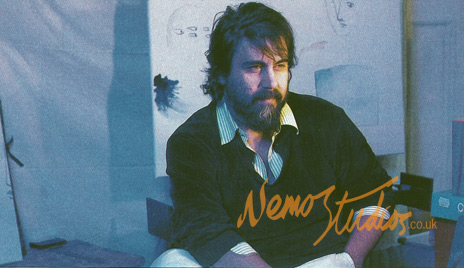
Vangelis - a musical journey
Vangelis was born in Agria Volos, a seaport town in Greece. His innate musical talents were recognised at the tender age of four. Two years later, at just six years old, he gave his first public performance, playing his own compositions on the piano. This was extraordinary for a young child without any formal musical training.
In those early years, Vangelis was not content to play just melodies, he wanted to create his own individual musical style. He was obsessive about discovering new sounds and understanding the nature of noises around him. His talents did not go unnoticed by his school or his family. They actively encouraged him to pursue his natural gift, and they encouraged him to attend a music academy for formal training. However, the young Vangelis was not interested in becoming a great pianist or orchestral conductor. It was not his intention to make music his profession. He preferred to experiment with new sounds. As time went by, Vangelis steadily developed his own unique style.
As a teenager, he had an inherent hunger for musical knowledge. He wanted to push all the boundaries, and this included the restrictions of his own country, Greece.
In the late 1960s, he moved to Paris to form an influential Greek progressive rock group, Aphrodite’s Child. As well as working with his band, Vangelis also produced music for film and television. In 1970, he started a creative partnership with film documentary legend Frédéric Rossif. During this period, he scored music for several art and wildlife films.
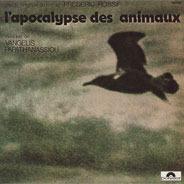
The most celebrated was the score for a series of televised wildlife features entitled L’Apocalypse des Animaux. For the soundtrack, Vangelis fused a framework of electronic sounds and acoustic instruments. The musical score was an excellent opportunity for Vangelis to develop new creative ideas, freeing him from the usual commercial pressures. This project turned out to be the perfect platform to showcase his talents for composing expressive music and the electronic instrumentation he implemented.
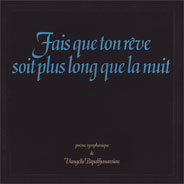
The 1968 student riots in Paris had a lasting impression on Vangelis, as he experienced them first-hand when he arrived amid the city’s demonstrations. In 1972, he created an album influenced by these rebellious events. The album was presented as an audio documentary. The album captured the first-hand reactions of people in the streets. All these sounds were poetically interweaved with chants and dream-like music.
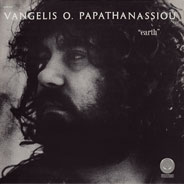
In 1973, he released his second solo album, called ‘Earth’. This percussive-orientated album had strong Byzantine undertones, reflecting Vangelis’ connection to his roots. The album was highlighted by a concert, held in Paris, at the Olympia Theatre in February 1974. The event was highly praised in the press, as it demonstrated Vangelis’ virtuoso skills on a variety of musical instruments.
Around this time, Vangelis received new-found recognition on the music scene. So, in 1975, he decided to move to London. It was there he established Nemo Studios, a large laboratory and sound-recording facility. The laboratory fulfilled a long-standing ambition, it provided Vangelis with an environment where he could develop and experiment with his musical ideas. At last he was able to compose music without restrictions or boundaries.
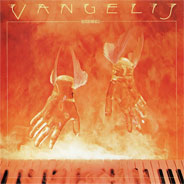
The first studio album to emerge from Nemo Studios was entitled ‘Heaven and Hell’, which was released in November 1975. The album featured a choral symphony composed entirely on keyboards. It also included percussion, and all instruments were played by Vangelis. The album also featured the revered English Chamber Choir.
The music was premiered at The Royal Albert Hall, and received great critical acclaim. Like most of Vangelis’ music, it has stood the test of time, and is still remembered with enthusiasm today. The release of ‘Heaven and Hell’ ensured Vangelis a place on the international music scene, winning him many awards.
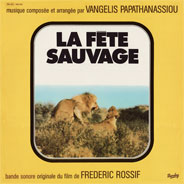
In that same year, Vangelis also released the music from Frédéric Rossif’s La Fête Sauvage, a wildlife documentary film made for cinema, featuring one of the earliest known forms of ‘world music’, combining African rhythms with modern, Western music.
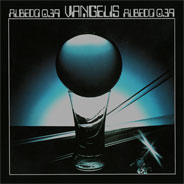
The follow-up to ‘Heaven and Hell’ was ‘Albedo 0.39’, which was released in September 1976. This was a thematic album relating to the universe, its origins and the birth and death of stars. It was a journey into mankind’s exploration into outer space.
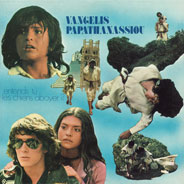
In 1977, Vangelis re-released his score to ¿No Oyes Ladrar Los Perros? The movie was directed by award-winning film-maker François Reichenbach. It was based on the novel by acclaimed Latin American author Juan Rulfo. The story was about a poor peasant carrying his wounded son across the Mexican landscape in a desperate search for a doctor.
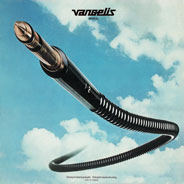
Also in December 1977, the follow-up album ‘Spiral’ was released. It was inspired by ancient Tao philosophy, exploring the nature of the universe moving in spirals. The album oozes with a myriad of spectacular sounds. It featured the unforgettable marching track ‘To the Unknown Man’, for which Vangelis was awarded the Midem International Instrumental of the year 1978.
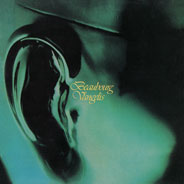
In July 1978, Vangelis released his next album, entitled ‘Beaubourg’. He wrote it with renewed inspiration after visiting the Pompidou Centre, in Paris. The album was composed and recorded back at Nemo Studios, in London. ‘Beaubourg’ invited the listener to take a fresh view of music, by disregarding the preconceived ideas of Western music.
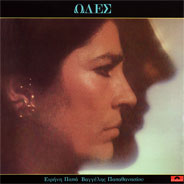
Later that year, Vangelis returned to his roots, musically, when he collaborated with fellow Greek actress Irene Papas on the album ‘Odes’. The album is a collection of traditional Greek folk songs. This body of work breathed new life into these previously neglected traditional songs, reconnecting them with the public for the modern age. The album became an instant success in Greece, and it was released worldwide the following year.
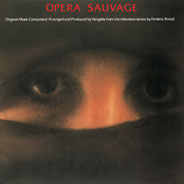
Vangelis also released ‘Opéra Sauvage’ in 1978. This was the full-length album developed from his score to Frédéric Rossif’s documentary television series. The album contained awe-inspiring melodies with profound contemplative moments. It showed Vangelis’ music to be his most opulent symphonic work to date.
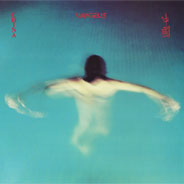
In spring 1979, Vangelis produced a new studio album called ‘China’. He was fascinated by the country, its people and its ancient musical traditions. The album enabled Vangelis to discover a whole new musical landscape, by taking a symphonic fusion of electronic and acoustic compositions further than he had ever done before.
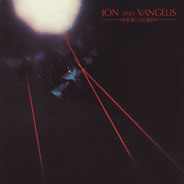
Also in 1979, Vangelis started an unplanned, but rewarding, collaboration with vocalist Jon Anderson. The two musicians worked in a straightforward manner, completing a collection of improvised songs, with very little overdubbing, within a few days. The songs were released in January 1980 under the heading of ‘Jon and Vangelis’, and the album was entitled ‘Short Stories’. It was a popular collaboration, bringing both artists chart success.

In June 1980, a single by Vangelis was released, called ‘My Love’. It was backed with by the song ‘Domestic Logic One’. The single was an appetiser to promote the up-and-coming album ‘See You Later’, which was due to be released in July. The album took a satirical look at the bleak future of modern society, questioning life itself. Vangelis used vocal contributions from guest performers to underline the album’s premise.
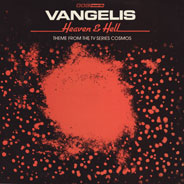
In September 1980, an American science documentary caused a global sensation. It was Dr Carl Sagan’s TV series Cosmos. The programme reignited the world’s general interest in science. This was mainly down to Dr Sagan's relaxed approach of introducing science to the masses. He made the subject much more accessible to ordinary people. One of the most influential aspects of the series was the soundtrack. The series used excerpts from Vangelis' existing music catalogue, which covered the previous 8 years of his career. There is no doubt that Vangelis’ soundtrack contributed to the programme's global appeal.
In 1981, he composed music for a low-budget British film, directed by Hugh Hudson and produced by David Puttnam. It was based on a true story of two British sprint runners competing in the 1924 Olympics. The young athletes became the two fastest runners in the world. The men were driven by very different motives and came from contrasting social backgrounds. At first, the movie received little support from the film industry, but when it went on general release, it fired the general public’s imagination with great enthusiasm.
It is almost certain that the film’s unequivocal success was down to its wonderfully uplifting musical soundtrack. Vangelis’ inspirational music made the characters larger than life, emotionally connecting them with the audience. The movie is, of course, Chariots of Fire, and is now regarded as an all-time classic film adaptation of heroism and true Olympic sportsmanship.
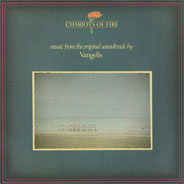
In March 1981, the ‘Chariots of Fire’ album was released. The album featured a number of awe-inspiring musical scores from the film. Vangelis went on to develop these themes into full-length compositions. His new improvisations complemented the film and added to its worldwide success.
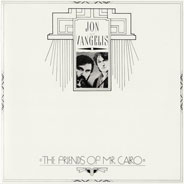
In July 1981, Vangelis and Jon Anderson released their second collaborative song-based album, ‘The Friends of Mr Cairo’. It was a tribute to the magic of cinema and the golden age of movies. The album featured what is now considered one of their most respected songs, ‘State of Independence’. Since its release, the song has been covered and performed by many revered artists.

In October 1981, Vangelis wrote the score for Frédéric Rossif’s documentary film on the life of the great painter Pablo Picasso, it was entitled ‘Pablo Picasso Painter’. The film is a collage of various poignant moments in the life of the world-renowned painter. Rossif had started working on the project 30 years earlier, when he had befriended the famous painter. This was Vangelis’ third score for Rossif which was inspired by great painters. The previous ones included scores for artists Georges Mathieu and Georges Braque.
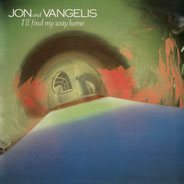
In November 1981, Jon and Vangelis released a one-off single entitled ‘I’ll Find My Way Home’. It was recorded in one evening and then quickly released. The single successfully climbed the UK charts and became a top-10 hit. The album ‘The Friends of Mr Cairo’ was re-issued in January 1982 to include the outstanding ‘I’ll Find My Way Home’ single, which ultimately became an unforgettable hit in the UK and the rest of Europe.
In February 1982, Vangelis wrote the soundtrack for Greek director Costas Gavras’ critically acclaimed film Missing, starring Jack Lemmon and Sissy Spacek. The film was a real-life political story, which went on to win a number of international film awards. The soundtrack for Missing underlined the anguish of losing a loved one amid tense political upheaval. It showed yet another side to Vangelis, demonstrating his mastery of capturing raw human emotion. This aspect was perfectly demonstrated in the poignant theme tune of the film.

By 1982, Chariots of Fire had already established itself as an influential film, and it captivated audiences all around the world. On the evening of 29 March, the Academy Awards were held in Los Angeles. The film received four academy awards, including an Oscar for Vangelis’ brilliant score. The award was a significant acknowledgement to Vangelis’ musical genius. He was the first artist to create a full orchestral score for a major motion picture using electronic instrumentation. Following the Oscar ceremony, the ‘Chariots of Fire’ single slowly climbed the US popular music charts. Eventually, both the album and the single reached the number-one position.
In 1982, he composed the music for Ridley Scott’s science fiction film Blade Runner, which premiered in the late summer of the same year. The film was a loose adaptation of the novel Do Androids Dream of Electric Sheep, written by acclaimed American science fiction novelist Philip K Dick. Vangelis’ musical score seamlessly complimented the powerful visuals and fascinating narrative. The soundtrack expanded the aural senses, drawing the viewer closer to Ridley Scott’s vision. Though this movie did not fare well at the box office at first, it has now become a timeless classic. It has since been revered by film critics, and science fiction fans around the world.
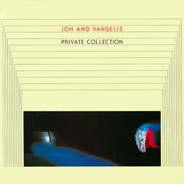
The third song-based album by Jon and Vangelis, ‘Private Collection’, was released in May 1983. It was their most sublime and contemplative effort yet. The album was supported by the single ‘And When the Night Comes’, followed by ‘He Is Sailing’ a few months later. The latter was backed with the rare track ‘Song Is’.
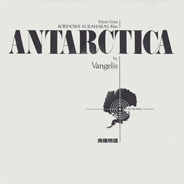
Also that year, Vangelis wrote the soundtrack for the Japanese film Antarctica, directed by Koreyoshi Kurahara. The film opened in Japanese cinemas in July 1983. It was a true-life story of a scientific mission to Antarctica in 1958. Because of adverse weather conditions, the team unavoidably had to return home, leaving behind their pack of sled dogs to survive alone at the South Pole.
Vangelis was never content to write music just for films. In the early 1980s, he began composing music for ballet and stage. He created music for the ballet R B Sque performed in aid of Amnesty International. It was choreographed by Wayne Eagling for The Royal Ballet School, and performed at the Theatre Royal, Drury Lane.
Vangelis also wrote music for director Michael Kakoyannis’ staging of the Greek tragedy Elektra, which featured Greek actress Irene Papas. The piece was performed at the ancient open-air amphitheatre in Epidauros, Greece.
In June 1984, Vangelis composed the music for the film adaptation of Mutiny on the Bounty, directed by Roger Donaldson, starring actors Anthony Hopkins and Mel Gibson. This was a historically accurate film of the mutiny on the infamous HMS Bounty. The story was told in a sequence of flashbacks, as Captain Bligh recalled his ordeal at the court martial. The musical score demonstrates Vangelis’ growing confidence for writing a contemporary soundtrack for a period film. The music featured intense symphonic orchestrations, intimately reflecting the ship’s turbulent voyage and the building tension between the ship's crew and officers.
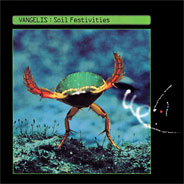
The success of Vangelis’ music in the film industry did not deter him from continuing his own personal discoveries into the exploration of music. His next venture was about the cycle of life and Mother Nature. This was his first solo album in three years, entitled ‘Soil Festivities’, which was released in September 1984. The music expresses the interaction between nature and its microscopic living creatures. The music Vangelis created perfectly captured nature’s sudden and dramatic changes. The album received praise among music aficionados, who thought it was a masterpiece, even though it is arguably among the least accessible works in Vangelis’ repertoire.
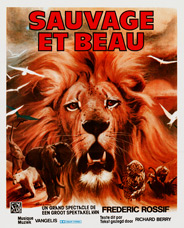
Vangelis continued his collaboration with film-maker Frédéric Rossif, and in December 1984, he wrote the musical score for the wildlife film Sauvage et Beau. The music exudes playfulness, bringing a certain charm to Rossif’s animals, which were filmed in their natural habitats. The film went on general release in cinemas across Europe.
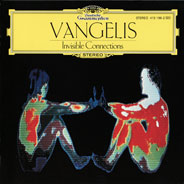
In February 1985, the follow-up to ‘Soil Festivities’ was a release called ‘Invisible Connections’. While ‘Soil Festivities’ focused on nature at a microscopic level, ‘Invisible Connections’ suggested delving deeper, exploring the world of elementary particles. It drew attention to a world invisible to the naked eye, a world devoid of human emotions, where the passage of time is indiscernible.
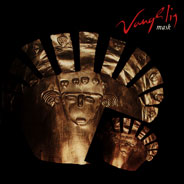
A month later, Vangelis released the album entitled ‘Mask’, where his musical exploration ascended from the elementary to a world more familiar to mankind. The album delved into the theme of the mask, an obsolete artefact which was used in ancient times for concealment or amusement. The music, which featured the English Chamber Choir, oozed with glorious contemplative moments enhanced with sublime vocal arrangements.
In July of the same year, he wrote the music for his second ballet, Frankenstein: The Modern Prometheus. The ballet was premiered at London’s Royal Opera House and was performed by The Royal Ballet. The choreography was arranged by the company’s principal, Wayne Eagling. The show’s spectacular costumes were designed by renowned clothes designer David Emanuel.
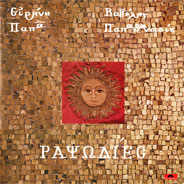
In 1986, Vangelis added the finishing touches to his second collaborative effort with Greek actress Irene Papas. The collection of Greek songs were premiered and performed by the actress in Venice the previous year, and the album collection was released, in Greece, under the title of ‘Rapsodies’.
In the same year, astronomer Dr Carl Sagan’s documentary Cosmos was being re-worked, as it was going to be re-broadcast on television. The first transmission of Cosmos, in 1980, had culled music from Vangelis’ existing catalogue. This time, Vangelis was actively involved, performing his original compositions in a new light, creating a powerful ambience. He was also involved in an amazing new opening theme for Cosmos, which conveyed the documentary’s humane message perfectly.
In the summer of 1986, Vangelis travelled to Los Angeles. During this time, he composed music on a portable keyboard which was set-up in his hotel room. It was here he wrote his third composition for The Royal Ballet, entitled ‘Beauty and the Beast’, which was to premier in December. The ballet featured lavish stage designs by Jan Michel Pienkowski. Vangelis also performed solo in a rare concert at the Royal Hall in UCLA, improvising many of his familiar compositions, without assistance from tapes or pre-programming.
After 13 years, his legendary London-based Nemo Studios closed its doors. By the mid-1980s, he was able to maintain a scaled-down version of his large recording studio, which was no bigger than a small office desk. This configuration allowed Vangelis to be mobile, enabling him to travel around the world, yet he was still able to record music everyday from any location.

The first album to be written in the post-Nemo Studios era was ‘Direct’, released in September 1988. The album consisted of a colourful collection of delicate symphonic music. The music on ‘Direct’ flowed effortlessly and evoked a sense of optimism for life. This release marked a new beginning for Vangelis, carrying his experimental sound explorations into the next decade.
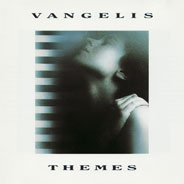
In July 1989, the compilation album ‘Themes’ was released. This was a retrospective look at Vangelis’ 20 years in film music. It included previously unreleased cues from Blade Runner, The Bounty, and Missing. The album reintroduced Vangelis’ music to a new audience and received great critical acclaim.
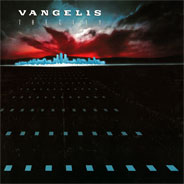
While on a visit to Rome to write the musical score for the film Francesco, Vangelis spontaneously wrote a series of compositions in his hotel suite. The recordings reflected a day of bustling city life, from dawn until dusk. The album incorporated a variety of sound samples from everyday life, and the listener could easily imagine actually being there, as the music created wonderful visual images of city life. The album was released the following year, in 1990, and simply called ‘The City’.
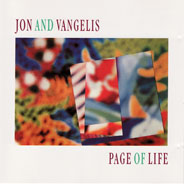
In May 1991, Vangelis was one of the official jurors at the Cannes Film Festival. A few months afterwards, in September, Jon and Vangelis released their fourth collaborative effort, called ‘Page of Life’. This was a new collection of songs which re-established the duo. The single ‘Wisdom Chain’ was backed with the rare composition ‘Sing With Your Eyes’.
In the summer of that same year, he hosted a concert staged at the ancient Odeon of Herodes Atticus amphitheatre. A tribute to the arts, poetry and literature, the concert featured guest performers Alan Bates, Fanny Ardant and soprano Markella Hatziano.
It was also in 1991 that he composed music for the film documentaries by the world-famous mariner Jacques Cousteau. Cousteau had also specially prepared a film with Vangelis' music for the Earth Summit, which was to be held in Rio de Janeiro in 1992. The film alerted the attending dignitaries to the ecological devastation affecting our planet. The documentary pointed out the alarming rate of climate change and, more importantly, the distressing poverty that prevailed around the world.
In 1992, Vangelis composed music for theatre director Nuria Espert’s staging of Medea, featuring actress Irene Papas. Vangelis also composed the soundtrack for Roman Polanski’s dark love story Bitter Moon, starring Kristin Scott Thomas and Hugh Grant.
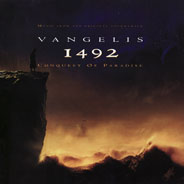
Also in 1992, exactly a decade after Vangelis wrote the score for Blade Runner, director Ridley Scott asked him to write for his next epic, 1492: Conquest of Paradise. The subject was about one of the most celebrated figures in history - Christopher Columbus. The movie coincided with the 500th anniversary of Columbus’ first voyage to the New World. Vangelis created atmospheric music which added to the overall ambience of the film. The soundtrack portrayed a sense of nobility, the failed hopes and aspirations of the crew and a voyage to new discoveries.
Throughout his prolific composing career, Vangelis received several honorary awards and titles, but one award worth highlighting is the Chevalier de Ordre des Arts et des Lettres. This was given to Vangelis by the French Republic, in 1992, for his significant contributions to the arts.
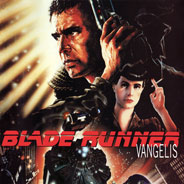
In July 1994, the eagerly awaited soundtrack to Blade Runner was made available to the general public for the first time. It coincided with the re-release of the film. Vangelis included tracks that were originally recorded for the film but were previously omitted. This was a lovingly assembled album which befitted the storyline and highlighted the key moments in this iconic movie.
Throughout his illustrious career, Vangelis avoided actively promoting his music. He gave very few interviews and limited his personal appearances in the media. Vangelis believed his music should be accepted on its own merit and did not warrant mass media exposure.
Sometimes, however, unintended promotion comes from the least expected sources. In 1995, Vangelis experienced one of his most extraordinary commercial success stories, when a German boxer used ‘1492: Conquest of Paradise’ as a personal intro. The music excited the audience, and soon its popularity spread to the radio, prompting its regular airplay. This resulted in Vangelis’ music reaching the masses across Europe. The theme was eventually issued as a single in Europe, and it became a resounding success. In Germany, it was the biggest selling single in chart history.
It was the same story for the album, which eventually attained certified gold and platinum discs in over 20 countries. ‘Conquest of Paradise’ has since been established as one of the most recognisable modern instrumentals, often overshadowing Vangelis’ other well-known music.
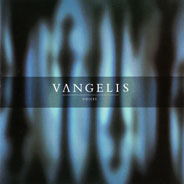
In late 1995, Vangelis released the poignant composition ‘Voices’, which, for the first time, added a human voice to his music. The album featured sensual songs filled with breathtaking nocturnal orchestrations, from which two singles were released. These included the captivating title track ‘Voices’ and mysterious ‘Ask the Mountains’. The latter also contained a rare song called ‘Slow Piece’.
A few months later, in 1996, Vangelis was asked to write for Greek director Iannis Smaragdis, for his film Kavavis. This was a portrait of the life of the modern Greek poet Constantine P Cavafy. The story was depicted in the form of a dream told from Cavafy’s deathbed. It used little dialogue, relying mainly on a recitation of Cavafy’s poetry and Vangelis’ musical mastery to drive its narrative. The movie was exhibited at a number of distinguished film festivals, and Vangelis received two honouree awards for the score.
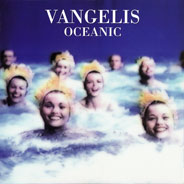
The follow-up to ‘Voices’ was entitled ‘Oceanic’. This was inspired by Vangelis’ love of the earth's beautiful oceans. The album, released in October 1996, explores the mystery of underwater worlds and portrays a dream of sailing to distant harbours. ‘Oceanic’ demonstrated Vangelis’ symphonic work at his best.
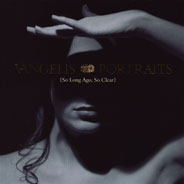
Also in 1996, Vangelis released a retrospective set called ‘Portraits’. This included two previously unreleased tracks, these featured a splendid choral adaptation of Vangelis’ old-time classic ‘Hymn’. The other track was the opening theme from Frederic Rossif’s movie Sauvage et Beau.
In 1997, Vangelis accepted a commission from the organising committee in Athens. The project was to stage, direct and orchestrate the opening ceremony for the inauguration to the 6th IAAF World Athletics Championships, which was to take place in August. The Olympic stadium in Athens was transformed into a stunning ceremony of lights, images, music and dance. It was attended by 60,000 spectators and televised worldwide to millions of viewers.
This was Vangelis’ debut as a director. He also composed uplifting music that was used through some segments of the ceremony. In addition to this, the great composer made a brief personal appearance to perform ‘Chariots of Fire’ on a grand piano.
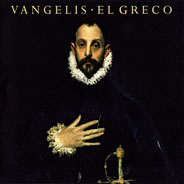
The 16th-century painter El Greco had been a profound influence on Vangelis. When he learned that The National Gallery in Athens desperately wanted to acquire El Greco’s painting of St Peter, he recorded an album in tribute to the artist. It was called ‘A Tribute to El Greco’. The release was limited to 3,000 copies and was only obtainable from the gallery in Athens. The revenue from the sales went towards funding and supporting The National Gallery’s ultimate goal. In 1998, the album was released commercially, it was simply called ‘El Greco’. The music reflected a more serene and introspective side to Vangelis. The album's meditative qualities were wholeheartedly welcomed and featured renowned Greek tenor Konstantinos Paliatsaras and Spanish soprano Montserrat Caballe.
In 1999, Vangelis was commissioned to create the music to accompany the unveiling of the official emblem of the 2004 Olympic Games. A year later, in 2000, he was chosen to be the artistic director for the passing of the Olympic flag in Sydney.
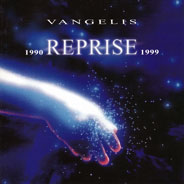
The retrospective album ‘Reprise 1990-1999’ was released in November 1999. It featured highlights of Vangelis’ works of genius and presented a seamless compilation of compositions, including the previously unreleased film theme from Bitter Moon and the composition ‘Psalmus Ode’.
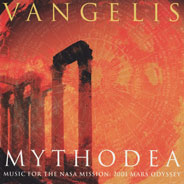
On 28 June 2001, the red planet Mars was closer to the Earth than it had been for over a decade. This was when Vangelis presented his space choral symphony ‘Mythodea’ at the Olympian Temple of Zeus, in Athens. It was the first concert of this kind to take place on the sacred ancient site. The event was endorsed by the participation of the American space agency NASA, as it chose his music to accompany its Mars Odyssey Mission. At the concert, Vangelis’ music was performed by world-renowned sopranos Kathleen Battle and Jessye Norman. The performance featured the London Metropolitan Orchestra, and the Athens National Choir. After the concert, Vangelis received the honorary title of Chevalier de la Légion d’honneur by the French Republic, for his exemplarity contributions as a civil servant. The concert was recorded and subsequently released on video. The album ‘Mythodea: Music for the NASA Mission: 2001 Mars Odyssey’, was also released.
Also in 2001, Vangelis returned to writing theatre music, composing music for Greek actress Irene Papas’ production of a classical Greek trilogy. He also wrote the score for Hungarian director György Schwajdas’ version of William Shakespeare's The Tempest which was performed in Budapest, Hungary.
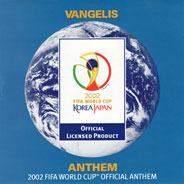
In 2002, Vangelis composed the official anthem for the FIFA World Cup, which was co-hosted by Japan and Korea. The anthem was performed during the opening ceremony in Busan, Korea. It featured traditional Korean and Japanese instrumentation. The anthem evoked a feeling of world unity and ignited a great passion for the game.
Vangelis’ interest in the arts had never been entirely restricted to composing music. Since childhood, he also had a passion for painting and sculpting. In 2003, Vangelis decided to place his artwork on show for the first time. He agreed to 70 of his paintings to be exhibited in celebration of the Valencia biennial, in Spain. After the success of the ‘Vangelis Pintura’ exhibition, his artwork was subsequently exhibited at many well-respected art galleries around the world. This was not Vangelis’ only achievement in 2003, he also had a book published featuring some of his finest artwork, simply entitled Vangelis.
In the same year, Vangelis received NASA’s Public Service Medal. It was presented to him in recognition of his outstanding contributions to NASA's vision. The medal represented the highest honour NASA can award for non-governmental individuals.
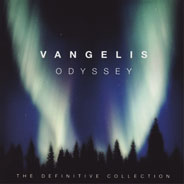
In October, Vangelis released ‘Odyssey - The Definitive Collection’. The album was a celebration of his illustrious musical career, which spanned a period of over 30 years. It featured a collection of Vangelis’ most famous pieces, taking the listener on a magical journey through time. This set included two new tracks, a new composition entitled ‘Celtic Dawn’, and the main theme from Cavafy.
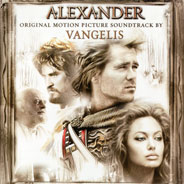
In 2004, Vangelis agreed to undertake the musical composition for director Oliver Stone’s epic movie Alexander. It was about the life of the young Macedon King who built a vast empire in the third century BC. The musical score marked Vangelis’ return to writing for a major motion picture, after a 12-year break.
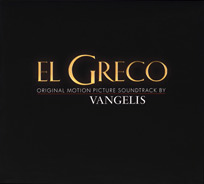
In 2007, Greek director Iannis Smaragdis asked Vangelis to write the music for the film El Greco. The film was about the life of the 16th-century renaissance painter El Greco, starting from when he set off from his Cretan homeland to look for artistic freedom. The film explores the painter’s illuminating artwork, which often brought him confrontation, but eventually led to fame. The closing theme tune gained Vangelis renewed respect, adding to his already longstanding creditability as an emotive film-score composer. In October, the film opened in cinemas across Greece. It was attended by record-breaking numbers in Greek cinema, and remained at the top of the box office for a full year.
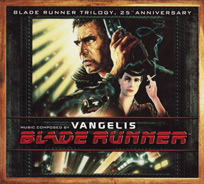
In December 2007, Ridley Scott’s time-honoured cult film ‘Blade Runner’ was re-released, to commemorate its 25th anniversary. The film was lovingly restored for the digital age. A 3-CD record set of Vangelis’ film soundtrack, called ‘Blade Runner Trilogy’, was released in the same year.
In May 2008 Vangelis was presented with an honorary doctorate by the National and Kapodistrian University of Athens, bestowing him with the esteemed title of Professor Emeritus. The doctorate was given to him for his exceptional contributions to the musical education of the Greek people, and for spreading the message of Hellenism throughout the world.
In December 2008, Vangelis contributed to the opening and closing themes for the Polish film Swiadectwo: a documentary film about the life of Pope John Paul II, seen through the eyes of Cardinal Stanislaw Dziwisz.
On 11 December 2011, Vangelis was invited by the state of Qatar to conceive, design, direct and compose music for the opening of its Greek-styled outdoor amphitheatre in Katara. Under the full moon near the Arabian Sea, Vangelis’ concert, entitled “Hope”, was witnessed by a number of world leaders and dignitaries participating in the 4th Annual Forum of the United Nations Alliance of Civilizations, held in the city of Doha. The concert featured superstars Angela Gheorghiu (soprano) and Roberto Alagna (tenor); and a light show by the late German artist Gert Hof.
When it comes to creating a new composition, Vangelis tries to capture the music without the influence of reason or possibility of alteration, or in the words of the great composer himself: ‘Thought is a tool of analysis, and therefore cannot be a tool of creation.’
In truth, this is the true essence of Vangelis’ musical creations. When he is composing, Vangelis totally looses himself in the moment, using his brain and his hands to create his compositions. When it came to explaining about how he comes up with an unlimited source of melodies, Vangelis said: ‘Well, I think melodies are all around us in space. It's in nature. We are bathing in sound and we either hear it or we don't hear it. If we make ourselves available it comes to us. I am no more than a radar which receives a message from the spheres.’
Vangelis’ varied career has taken many twists and turns, but, over time, his music has had far-reaching implications. His music inspires, elevates and heals the human race, and it has pushed the boundaries of conventional music. In the years to come, Vangelis will undoubtedly be recognised as one of the 21st-century’s greatest composers.
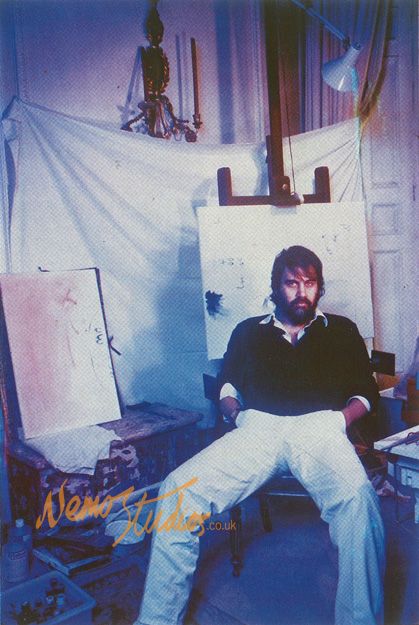
Other related web sections
 MAIN WEBSITE
MAIN WEBSITE
Back to main site
 VANGELIS’ FILM SCORE FOR BLADE RUNNER
VANGELIS’ FILM SCORE FOR BLADE RUNNER
Vangelis’ Blade Runner film score
 PORTRAIT OF A RECORDING STUDIO
PORTRAIT OF A RECORDING STUDIO
A look at Vangelis’ Nemo Studios

Vangelis - a musical journey
Copyright © 2024 nemostudios.co.uk